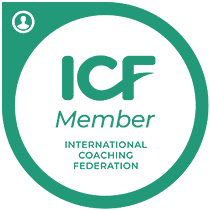
Managing Stress – the key to a Joyful Life
The One thing I wish someone had taught me when I was young was how to identify and handle stress. Not the small stuff like losing car keys or getting stuck in traffic, but the constant hidden pressure building over a lifetime. That might have been difficult because I experienced high levels of stress even as a small child. A difficult home environment that moved to abuse both mentally and physically by one parent, and then at school left me open to stress. Why was that? We learn from key authority figures when young and take on beliefs, values and models of handling stress from what we see role modelled. Put simply, healthy role models are more likely to produce healthier approaches that lead to a more joyful life. As we age and start work, leaders, and the culture, will further influence both our stress and how we handle it. My saving grace was my father who instilled in me that we could learn and change things.
So, the good news is, we don’t have to stick with models of managing stress that don’t work. Simple right?? Actually, no, simple intellectually but more problematic in terms of actually doing something different. Much of what keeps us stuck in patterns of behaviour, or holding onto beliefs that do not work for us is in our subconscious. For example, the culture we operate in might see stress as a badge of honour so we ignore it because ‘it’s just what people do’. When we’re young we tend to have more resilience and energy, so we ignore stress -we exercise, go out, and push it aside. We aren’t taught to pay attention to the cues our bodies give us, so we ignore the warning signs that stress is getting too much. We fear that we are not good enough, or someone will catch us out, so we don’t want to acknowledge the stress we feel.
Who we work for makes a huge difference. A boss that places a high value on achievement and success may lead an individual to experience chronic stress due to the pressure to meet high expectations. A manager who micromanages or is critical again can cause chronic stress. A manager that doesn’t get you engaged, who has no impact particularly positive or negative, causes potential stress through boredom. The leader who is supportive, gets you engaged, trusts and respects you is the one that creates and environment in which you can thrive. Hence who you work for has a big impact on your wellbeing.
When I was in my 20’s and 30’s I would probably have told you I was thriving. Outwardly, I had my degree, good jobs, my own home, children, I exercised, I socialised with some good friends, and I was being constantly promoted. Looking back most of that time I was not Thriving, I was Striving. Striving to achieve, deliver, learn, make a difference, figure out how to be a good parent, struggling to find a relationship that worked, waking up and worrying about things I needed to accomplish, dealing with people who drained my energy at work. I exercised. and that helped, I listened to music and laughed (but not as much as I wished to), all that helped manage the stress.
By my early 40’s I wanted something different, I made a significant change swapping directions in my career to coaching, and leadership development. That was a great new challenge, and again I would have said. after the transition period, I thrived. Did I though? A failed relationship, the challenges of my kids hitting their teens, different pressure at work, lots of travelling, I started to know I was getting older. Then bang! My first serious warning – a major medical emergency caused directly by travelling and an undetected genetic disorder. I had to slow down. As I got better, I made decisions, finishing a relationship and finding eventually my husband. I just wanted to get back to how I was. I finished a PhD, I enjoyed research, I loved coaching and developing myself and others life was getting better wasn’t it. However, did I really slow down, no not really! My husband and I dealt in a short space of time with a number of deaths of those close to us. The end result of that stress, my health was poor and later a trip to a specialist in Belgium was what was needed to wake me up to the importance of my health.
By my mid fifties things were changing about how we developed people, new technology, change of bosses, some of this made life better some was decidedly worse. Looking back the beliefs I held then were laughable. I believed that ‘Life would calm down and I would be able to just enjoy how my life was’, ‘that those I worked for would have the same levels of integrity and leadership capability as those that came before’. I was so wrong. The worst period of my career came along with being bullied, experiencing moral injury (effectively leaders who did not live the company values nor behave ethically) and PTSD, depression and adrenal fatigue. Adrenal fatigue can impact anyone suffering chronic stress whether it’s a good stress, perhaps from being a top athlete, or the stress that I encountered.
The point is the body keeps a count. Cumulative stress over a number of decades can build. You make think you have this stress thing cracked, I certainly did, and so did many other successful people I have talked to. Looking back now, a few key things strike me:
- You may focus on one or two key-ways of managing stress like exercise. The thing is, at the very least, you will age and at sooner or later exercise if not adapted will become less effective. Worse still pushing yourself continually in the wrong way especially when older, can actually cause chronic stress.
- I did not pay enough attention to my inner beliefs and the stress these caused. For example, ‘I believed others coped better than I did’. What that meant was I created a vicious circle of stress by constantly trying to prove I was coping even when I wasn’t. This coupled with a belief that it was ‘weak to ask for help’, meant I never really stopped to ask myself whether I was thriving or not. Yes, I stepped away from relationships that did not work. Yes, I had changed jobs and roles particularly in my early career. However, I had not realised the impact of who a toxic boss, on top of other life stresses could push me into a not coping zone.
- I didn’t check in enough with myself to monitor whether I was stressed, the degree to which I was stressed and the causes of that stress. My blindspots, when checking-in were, acting on what my body was telling me, realising inner beliefs kept me trapped in stressful habits, and not wanting to face that I might need to slow down either for a time or longer term.
So, what would I tell my younger self now if I could? What would I like to tell those of you who are jogging through life comfortably in the false belief that Stress could never get you. I’d tell myself to AWAKEN to what to do to manage stress and increase joy.
| Awareness | of how stressed you are, the causes and the impact on you mentally, emotionally and physically
|
| Wake up | To what you want, your goals, your dream, sense of purpose and vision |
| Assess and Admit | Where you are and admit to yourself how you might be impacting your own stress |
| Keep | Your focus on where you want to be and not your fears |
| Engage and Experiment | Find someone to support you a coach, friend, family member who can support you to find stress busting tactics that work for you |
| Nurture | Your successes, learn from failure and do something different |
Future articles will expand on the awaken series. I would love to hear your thoughts.
Dr Jane Trinder-Randle
I am here to help you
Get in touch with me today and let’s start the journey together. If you want further information about the general coaching programmes please see the attached coaching brochure 2



